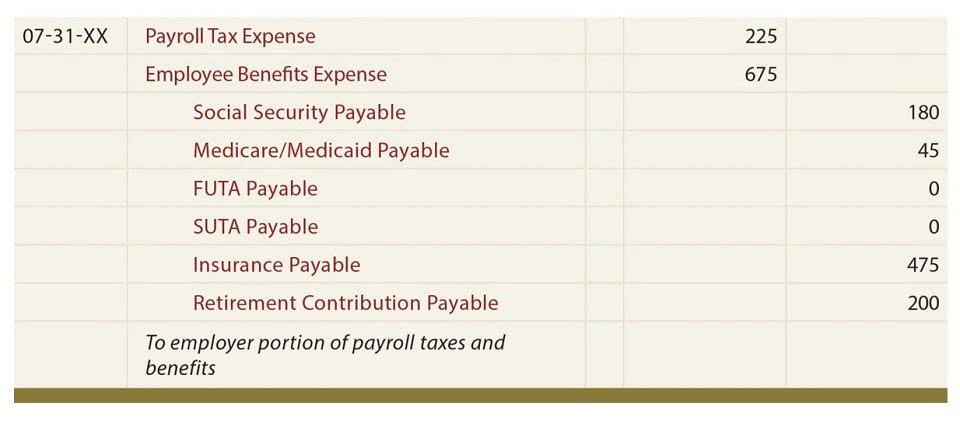
With the right accounting firm, you have a wealth of expertise at your fingertips, ready to handle Partnership Accounting everything from basic bookkeeping to complex financial strategies. This choice can significantly impact the efficiency and scalability of your business’s financial management. Understanding the pros and cons of each option can guide you to the best decision for you and your business.

How to Choose Between In-House vs Outsourced Accounting?
It improves efficiency, ensures real-time data access, and reduces manual errors, making outsourced services more effective and scalable. Choosing outsourced accounting means small businesses can avoid the downsides of using a small or inexperienced team. With a dedicated team taking care of finances, you can work on growing your business. For a long time, companies used in-house accountants for their bookkeeping and accounting. Now, thanks to technology and an expanding market, using outsourced bookkeeping services is a smart move for many small businesses. Many business owners wonder if they should keep their accounting in-house or outsource it to professionals.
- Similarly, if there is an emergency, you can immediately get in touch and sort it out before things escalate.
- Ready to get started with outsourcing your day to day accounting services?
- In today’s ever-expanding “gig economy,” outsourcing entry-level tasks and job roles has become commonplace.
- In-house accountants can develop customized solutions that cater to your unique business needs, taking into account your industry, size, and growth trajectory.
- When you outsource your accounting, you gain access to a wider pool of specialized expertise.
- Collaborating with an outsourcing provider is an effective way for companies to delegate payroll processing.
Allows focus on core business activities
- Accounting is a prime example of a role that can be effectively performed remotely.
- It’s crucial to thoroughly vet potential providers and review the terms and conditions to avoid unexpected expenses.
- This approach provides direct control over processes, systems, and outcomes.
- Bookkeeping involves the meticulous recording of daily financial transactions, such as sales, expenses, and payroll, ensuring that every financial movement is accurately documented.
- If they experience service disruptions, it could impact your business operations.
- But in all seriousness, at Near, we help businesses hire top-tier accountants from LatAm, cutting overhead costs by 30% or more.
- This gives you a sense of security and confidence in your financial management.
You depend on external experts to manage tasks, which may not always fit your internal preferences or workflows. In-house accountants can create tailored solutions that fit your unique business requirements. They understand your industry, size, and growth plans, allowing them to provide customized financial strategies. Having an in-house accounting team means you control your financial processes more.
- You also avoid the hassle of recruiting and training the right talent for the job.
- These technologies streamline processes, improve accuracy, and provide valuable insights that can drive strategic decision-making.
- Outsourcing accounting, however, involves partnering with an external accounting outsourcing company to handle these tasks.
- This involves hiring full-time or part-time employees who work directly for your company.
- By carefully considering the pros and cons of each approach and evaluating your specific circumstances, you can make an informed decision that supports your company’s financial health and growth.
Tips for Scaling Your Accounting Firm

Scalability and flexibility are key advantages of outsourcing that enable your business to swiftly adapt to changing financial needs. Outsourcing helps adjust the size and scope of services with ease, whether scaling up during periods of growth or scaling down during slower times without the need for internal restructuring. This adaptability helps your organization manage seasonal fluctuations, respond to market shifts, and align financial operations with an ever-changing market. When it In-House Accounting vs Outsourcing comes to staffing your CPA firm, the debate between keeping tasks in-house and opting for outsourced accounting services is a hot topic. An Outsourced CFO business advisor can make the tough decisions necessary to increase efficiency, control costs, and better align resources.

Flexibility

The decision between outsourced and in-house accounting can significantly impact your business’s financial health and operational efficiency. This article explores both options, helping you make an informed choice that suits your business needs. The available financial resources and budget significantly impact the decision between outsourcing and in-house accounting.
Outsourcing Accounting Services Explained
Outsourcing companies are equipped with a team of experienced financial experts who are well-versed in the latest industry practices, regulations, and trends. This expertise ensures that critical financial tasks, such as accounting, payroll, tax compliance, and financial analysis, are managed with precision. In our accounting digital age, the technology stack you use is as crucial as the team itself. In-house teams may require significant investment in technology and training to stay on the cutting edge. Consider how easily outsourced services can integrate with your existing systems. Seamless integration can significantly enhance efficiency and data security, making the outsourced model more attractive.
- For instance, an employee might manipulate financial records for personal gain.
- You must think hard about what’s best for your company, considering your needs, budget, and if you want more control.
- In-house accounting is the traditional method of hiring an accounting professional to work from the office under the company’s payroll.
- And if you don’t have any checks and balances in place, they can embezzle money and cover their tracks for years without anyone noticing.
- Towards the end, these differences can help you achieve more clarity and make an informed decision.
- In-house accounting involves establishing and maintaining an internal accounting department within the organisation.
- With access to specialists, businesses can better manage cash flow, track expenses, and plan budgets.
Q2. Which finance and accounting tasks are commonly outsourced?
There are pros and cons to both outsourcing and hiring in-house staff for accounting functions. Choosing to outsource gives companies a way to use expert skills and grow without the cost of a big team. By thinking about your specific needs and sticking to the right methods, a mix of in-house and outsourced can be the perfect fit. It lets you focus on what you do best while keeping your finances strong in a way that’s right for your business.